Anyone present at the 2024 North Carolina Renewable Energy Challenge would have seen young minds spinning as fast as the turbines the students themselves had manufactured. On March 23, 2024, over one hundred students, mentors, parents, and volunteers gathered at the Coastal Studies Institute for the annual event. The goal of the day? Learn about the alternative renewable energy sources including wind and ocean currents, all while having fun as the student teams competed against one another.
The North Carolina Renewable Energy Challenge is held each year on the ECU Outer Banks Campus in partnership with KidWind and Jennette’s Pier. Participating teams must engineer a renewable energy device, such as a wind or underwater turbine, and compete against each other to create the most efficient design. In addition to creating their machines, teams are also asked to demonstrate their renewable energy knowledge before a panel of judges and gather extra points by participating in smaller activities known as Instant Challenges.
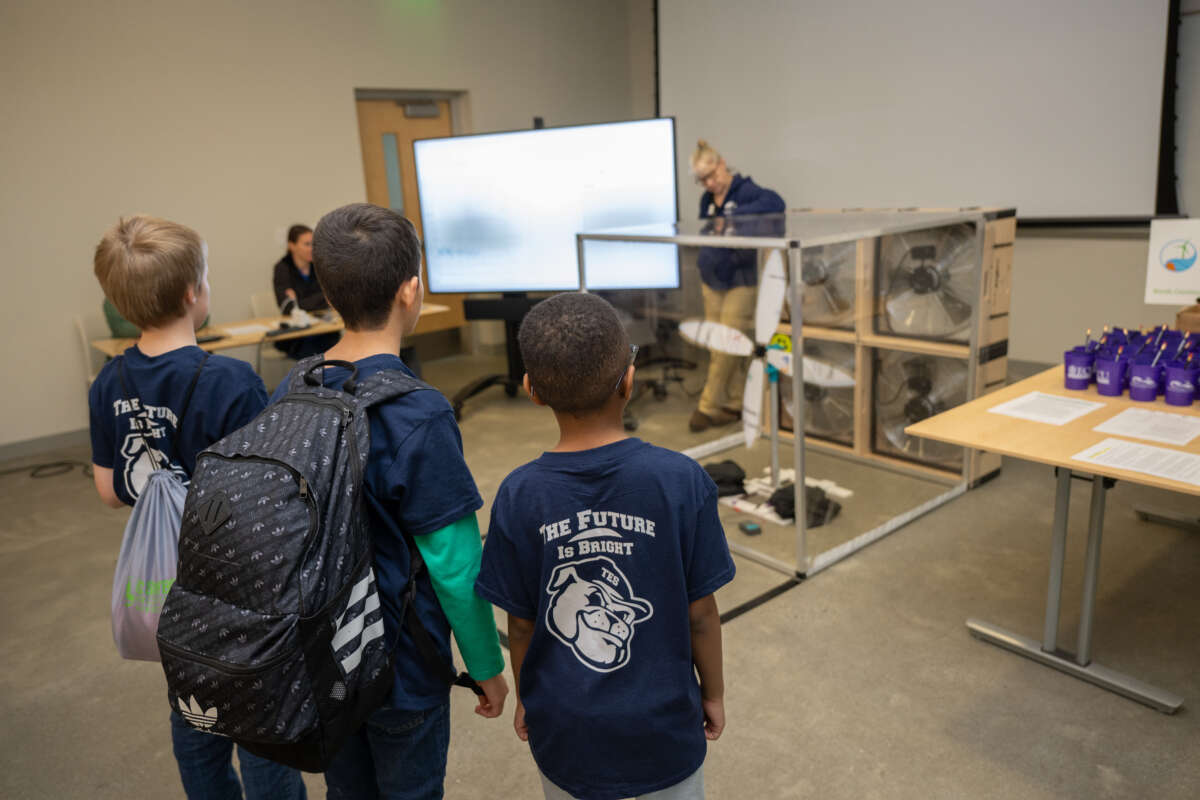
A team from Tyrrell Elementary School watches as their turbine spins in the wind tunnel.
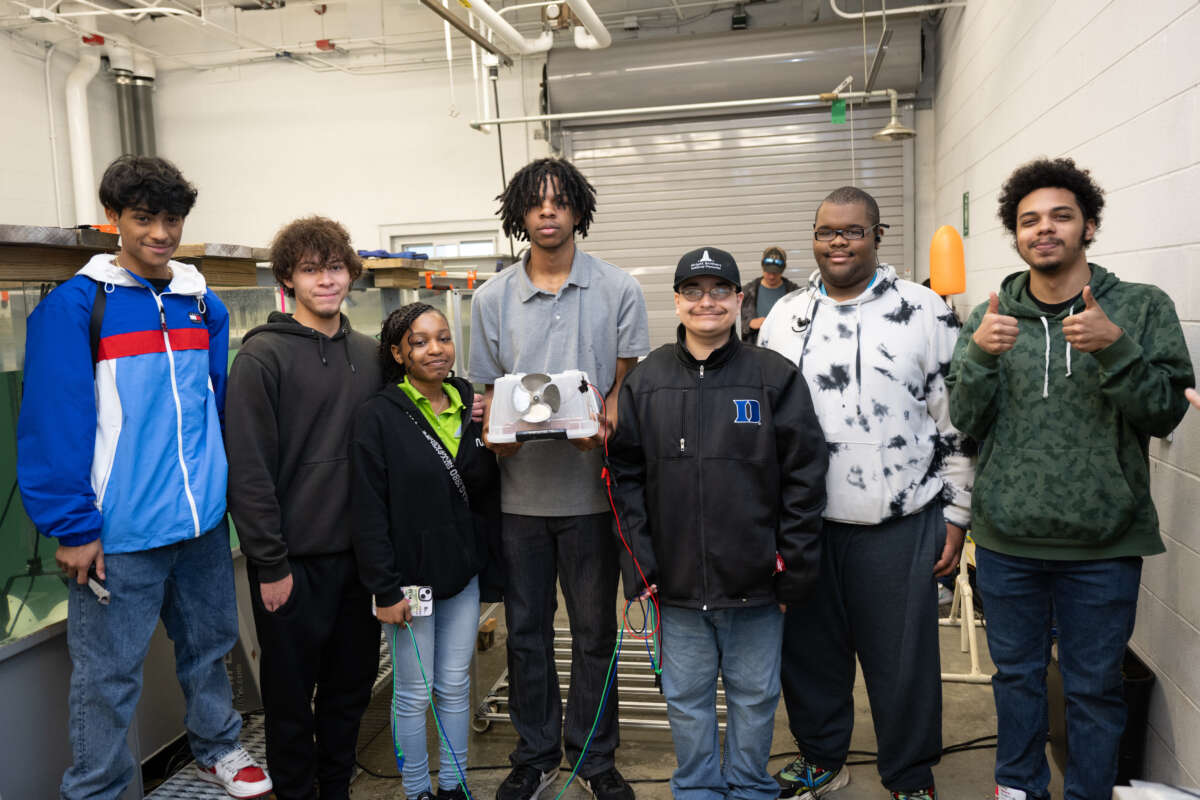
The Academy of Green Tech team from Fayetteville, NC poses in front of the retrofitted wave tank with their underwater turbine.
2024 was the biggest event yet, with 18 teams participating on competition day. Teams came from eight different NC counties from as far away as Boone and Wilmington. There was a great showing of teams from northeastern NC as well, with teams from Dare, Currituck, Tyrrell, and Pasquotank counties. Six teams were comprised of high school students, while the remaining teams bridged grades 4-8.
Two high school teams rose the challenge in the Underwater Currents division. Not only did they need to build a working turbine, but it also needed to be waterproof. Both teams were successful in their endeavors, and each produced measurable power as the blades of their devices were spun by the 1 meter per second current produced in the CSI wave tank (retrofitted to become a recirculating flume).
The remaining sixteen teams, four in the high school division and twelve in Grades 4-8, rotated their way through the Wind Turbine testing area. Each team had three chances for their device to produce as much energy as possible in the wind tunnel. Each team’s turbine performance was a crucial part of the final score.
Teams moved excitedly from station to station between 9AM and 12PM. Once all Instant Challenges, testing, and judging sessions were complete, all gathered for a pizza lunch and keynote address from Dr. Andrea Copping, an oceanographer from the Pacific Northwest National Lab. There she studies the environmental impacts associated with marine renewable energy devices and technology. As Dr. Copping spoke, event organizers tallied the final scores.
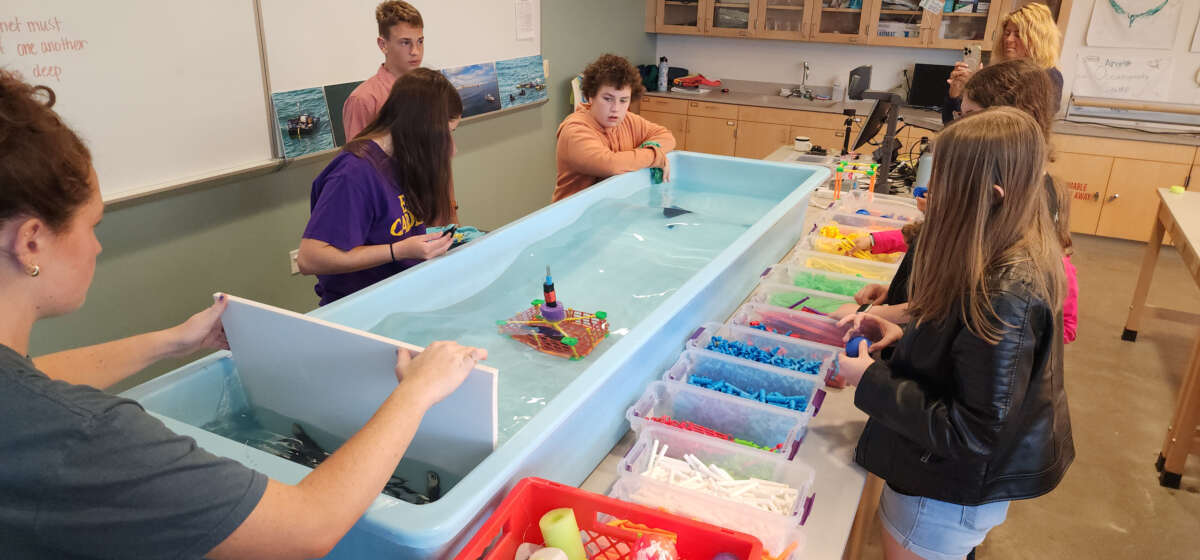
Students participate in the Wave Energy Converter Instant Challenge.
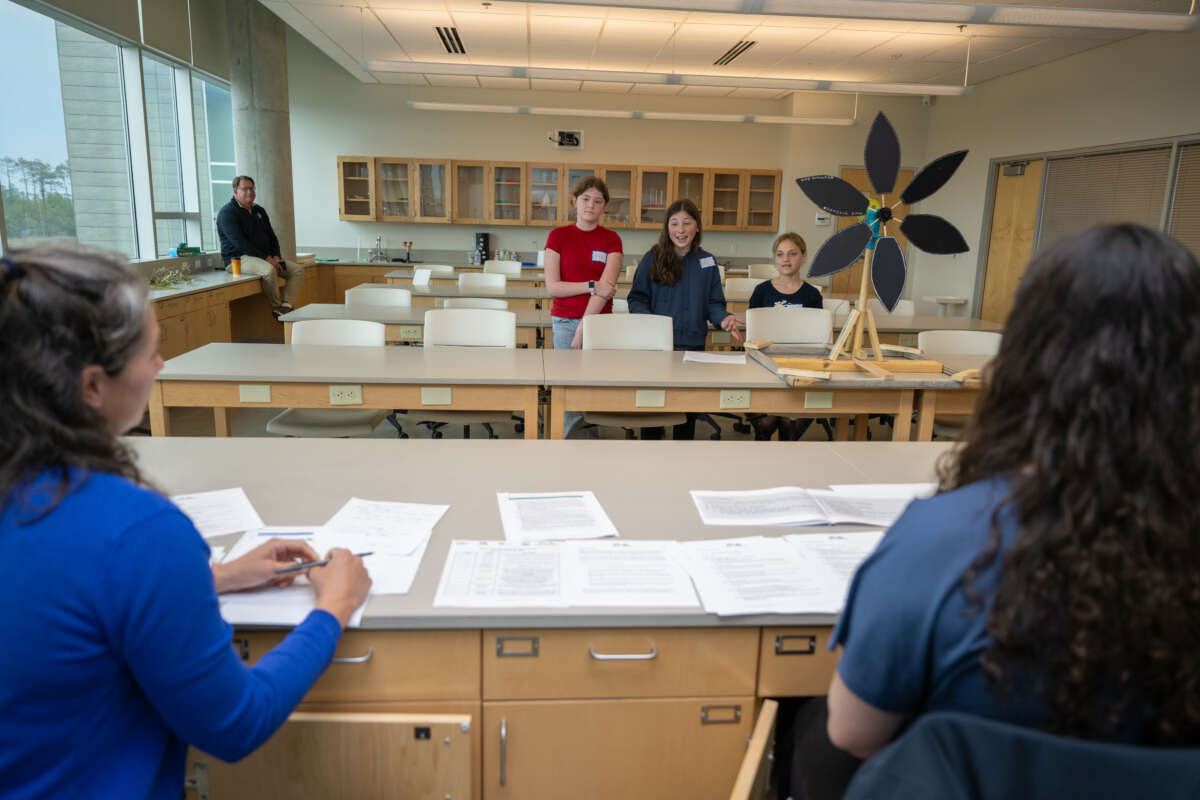
A team describes their turbine before the panel of judges.
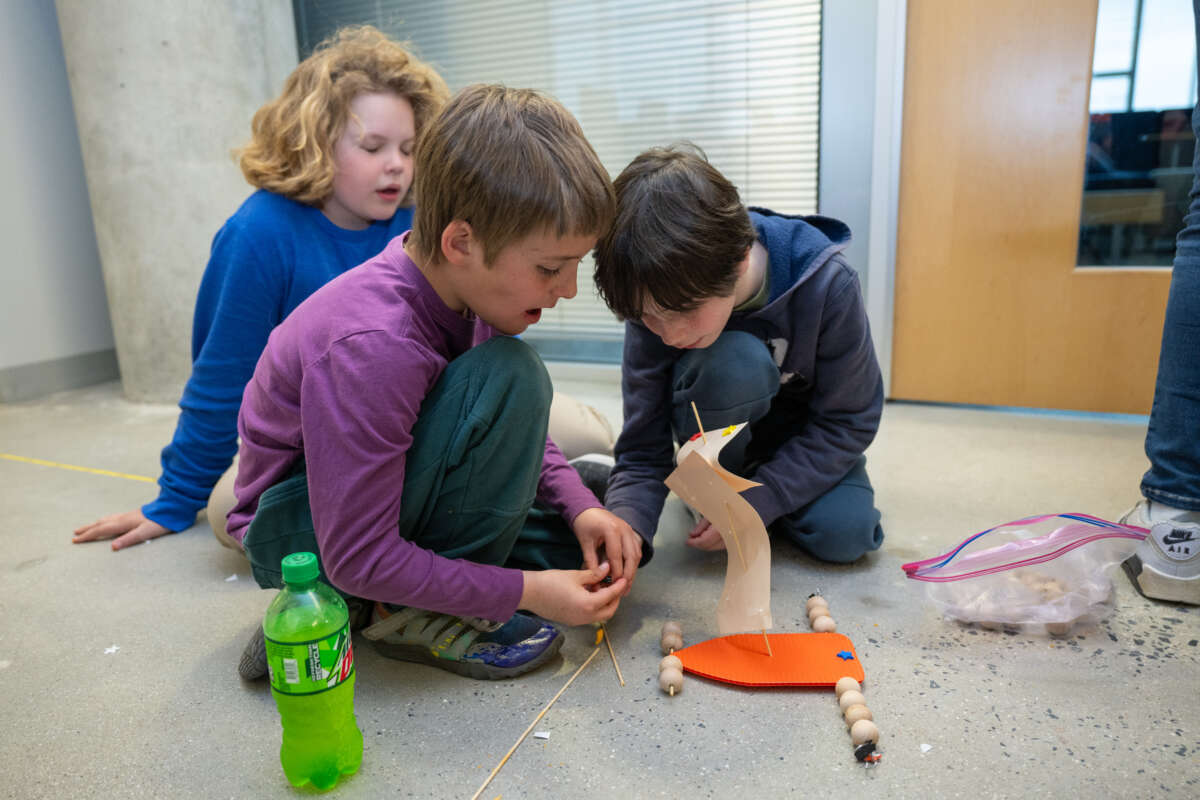
Students participate in the Sail Car Instant Challenge.
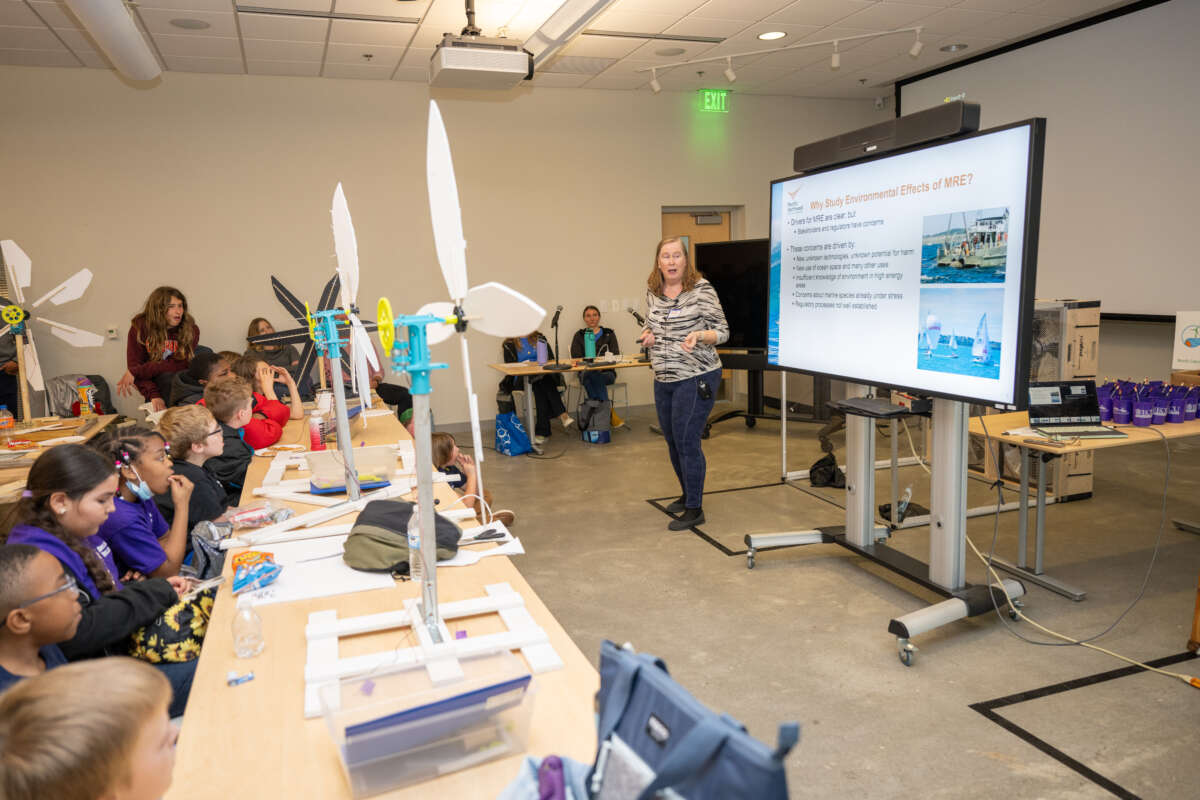
Dr. Andrea Copping delivers the keynote address.
The Unicorns from First Flight High School narrowly took home first place in the Underwater Currents division over the Academy of Green Tech from Douglas Byrd High School.
The first and second prize winners of the High School Division, The Sea Turtles (below, left) and The M+M’s (below, right), respectively, were both from the Center of Applied Science and Technology in Wilmington, NC.
A team from First Flight Middle School, with the same name, took home the winning prize in the Grades 4-8 Division. Team Windy’s from the Water’s Edge Village School was the runner-up.
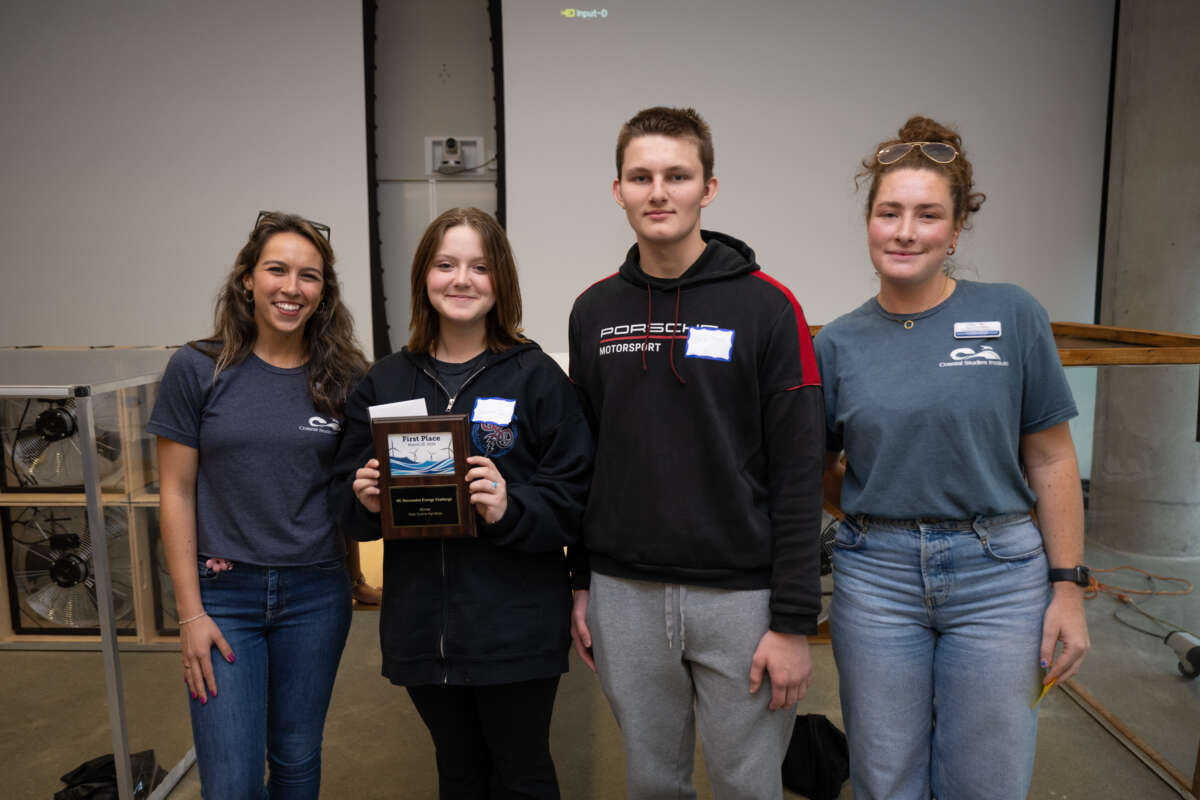
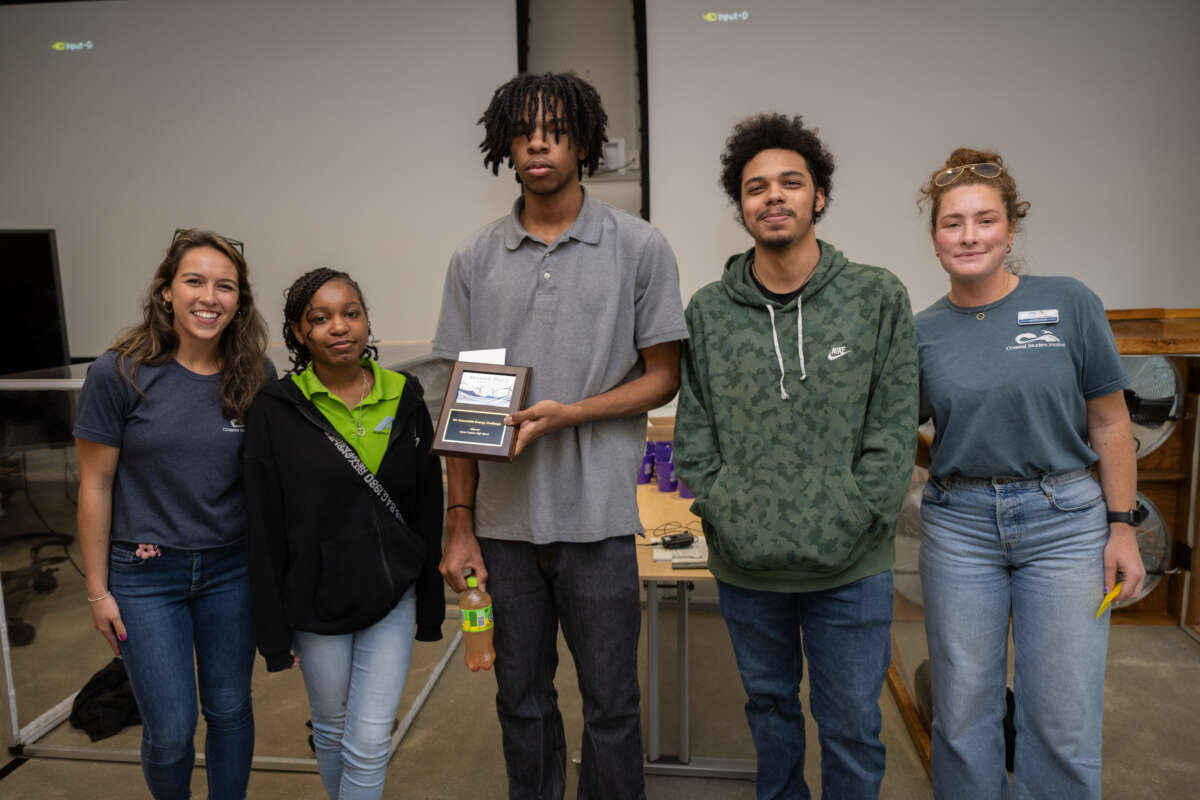
Underwater Currents, High School division winners: The Unicorns (left or top image) and the Academy of Green Tech (right or bottom image).
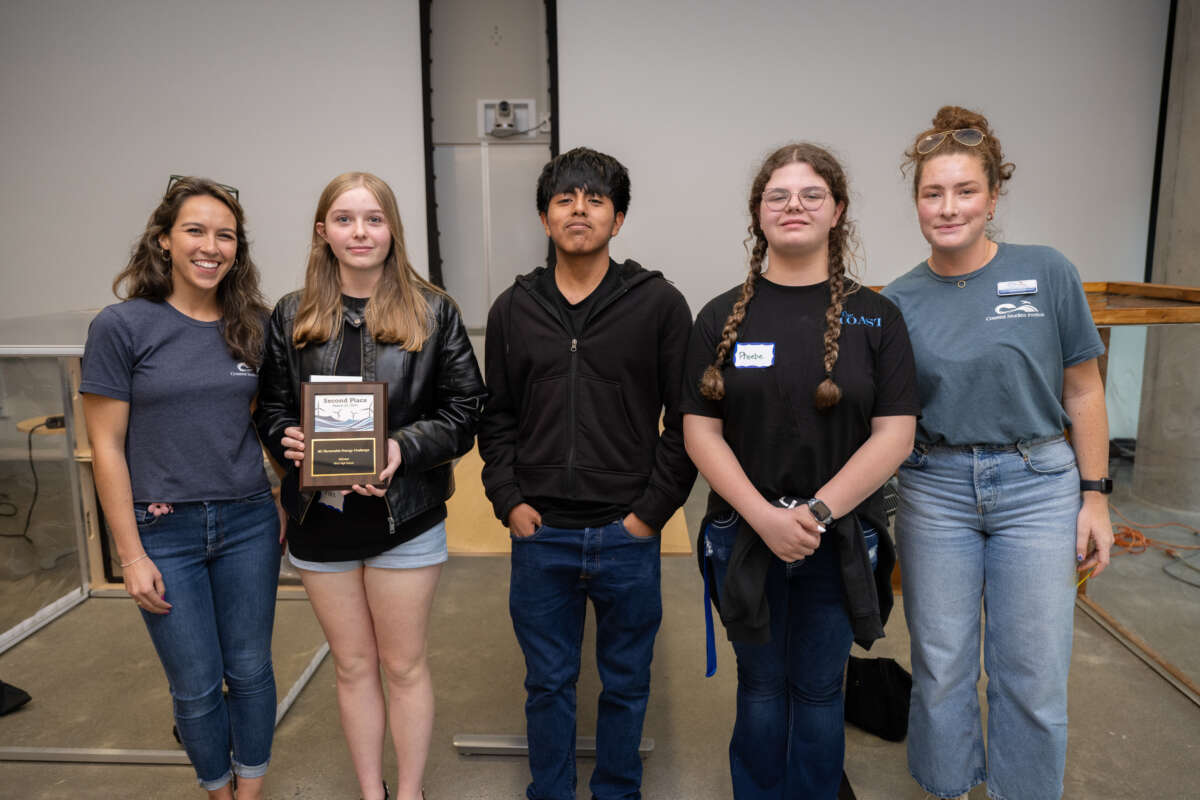
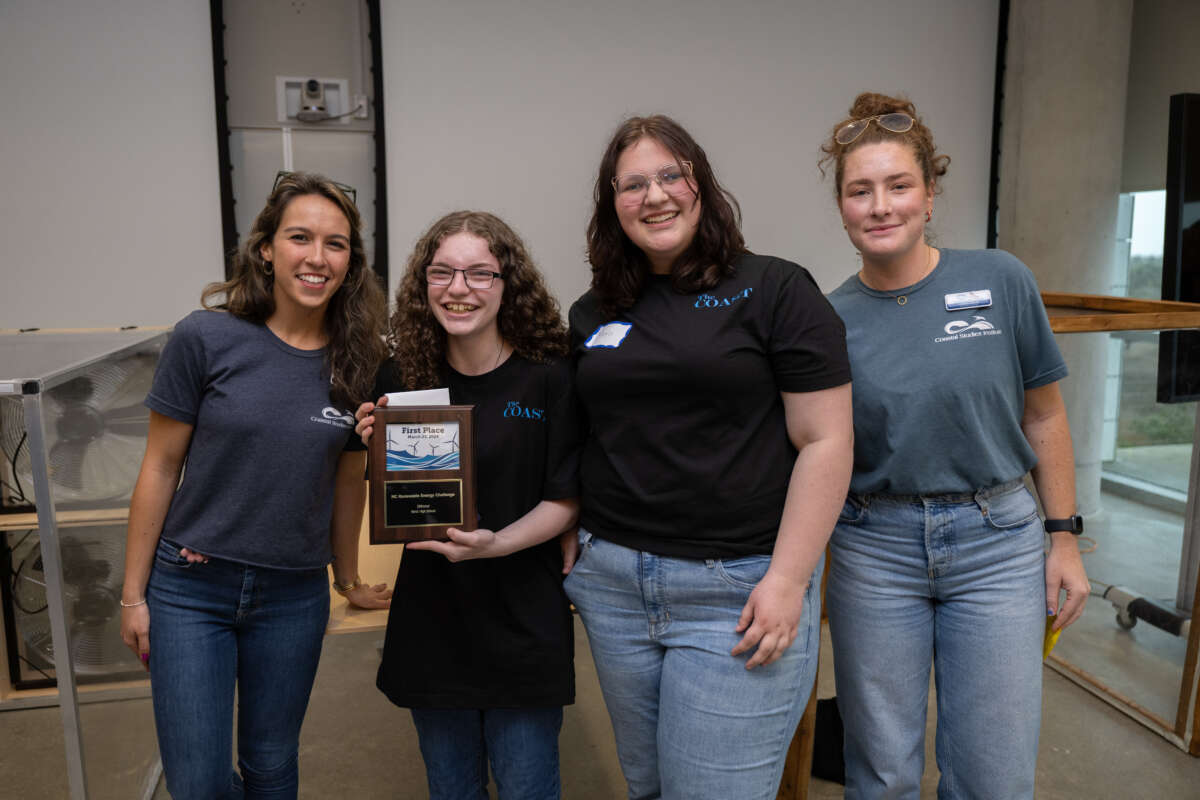
Wind Energy, High School division winners: The Sea Turtles (left or top image) and The M+M’s (right or bottom image).


Wind Energy, Grades 4-8 division winners: First Flight Middle School (left or top image) and Windy’s (right or bottom image).
The winning wind teams received invitations to the KidWind Worlds event happening in May in Minneapolis, MN. Since there is not an advanced stage of the underwater currents division, those teams were invited to come back to CSI and test updated devices at any point during the year.
“I am continuously impressed by the devices the teams make. It seems like each year they produce more and more energy. It’s so inspiring to watch veteran teams improve upon previous years’ ideas, and it’s so much fun to watch new teams get excited about renewable energy. The event always seems to spark something in all attendees whether they be competing, volunteering, or viewing. It’s a great opportunity to learn from one another!”, says Parker Murphy, one of the Challenge organizers.
Though seemingly chaotic with so many excited students running from room to room, it’s safe to say the event was a great success, and everyone was blown away.
The preceding story first appeared in the Spring 2024 edition of CoastLines. CSI wishes to extend a special thank you to partners- Jennette’s Pier and KidWind-, sponsors- Avangrid and the NC Renewable Ocean Energy Program-, and the countless volunteers, all without whom the event could not occur.

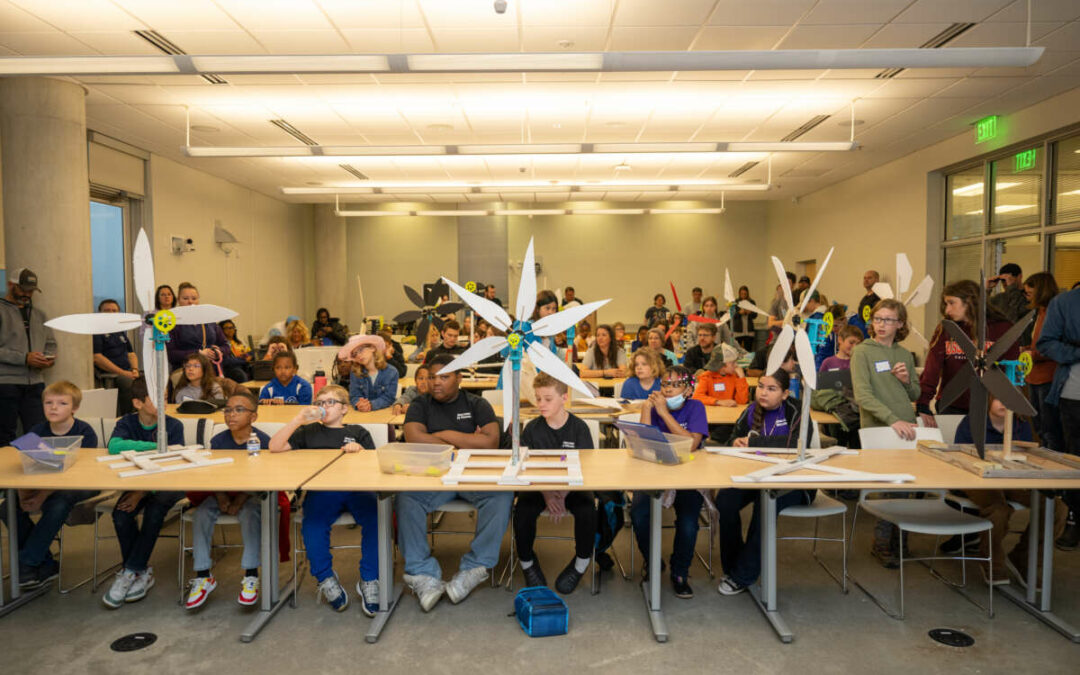

 Based at the Coastal Studies Institute (CSI), the North Carolina Renewable Ocean Energy Program (NCROEP) advances inter-disciplinary marine energy solutions across UNC System partner colleges of engineering at NC State University, UNC Charlotte, and NC A&T University. Click on the links below for more information.
Based at the Coastal Studies Institute (CSI), the North Carolina Renewable Ocean Energy Program (NCROEP) advances inter-disciplinary marine energy solutions across UNC System partner colleges of engineering at NC State University, UNC Charlotte, and NC A&T University. Click on the links below for more information. ECU's Integrated Coastal Programs (ECU ICP) is a leader in coastal and marine research, education, and engagement. ECU ICP includes the Coastal Studies Institute, ECU's Department of Coastal Studies, and ECU Diving and Water Safety.
ECU's Integrated Coastal Programs (ECU ICP) is a leader in coastal and marine research, education, and engagement. ECU ICP includes the Coastal Studies Institute, ECU's Department of Coastal Studies, and ECU Diving and Water Safety. The ECU Outer Banks campus is home to the Coastal Studies Institute.
The ECU Outer Banks campus is home to the Coastal Studies Institute.

